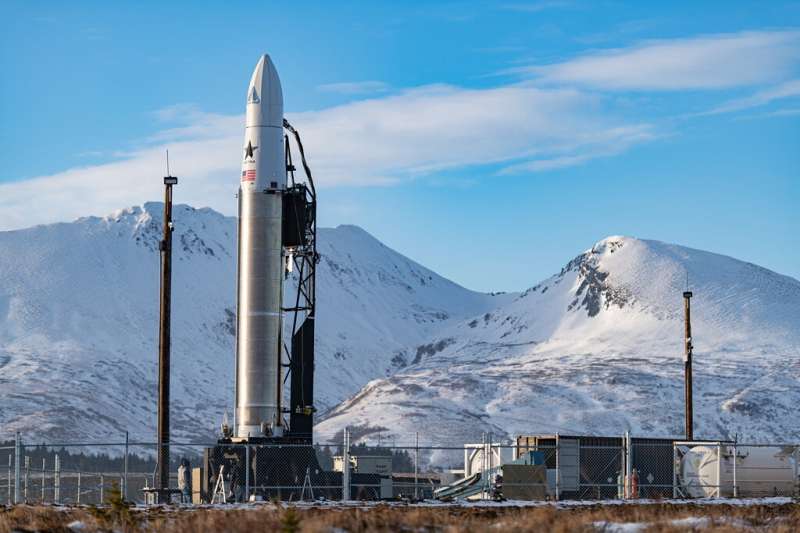The Sunday launch window is also 1-4 p.m., but Space Launch Delta 45′s Weather Squadron had predicted only 40% chance for good conditions with lightning and cloud cover as concerns as a surface low pressure area forms off the coast of Florida overnight.
Much smaller than established rockets like the SpaceX Falcon 9 or United Launch Alliance Atlas V, Astra Space's hardware stands only 38 feet tall and has a payload capacity of 331 pounds. The company is looking to fill a market that allows for small payloads such as CubeSats, standard-sized satellites about the size of a loaf of bread, an opportunity to fly to space for much less money.
The company successfully sent a Rocket 3 into orbit last November for the first time on a demonstration mission with a U.S. Space Force payload from the company's second spaceport in Kodiak, Alaska.
This new rocket, dubbed, Rocket 3.3, is carrying four satellites as part of NASA's CubeSat Launch Initiative. for three universities and one NASA space center. The company was one of three chosen through NASA's Venture Class Launch Services Demonstration 2 contract, and secured $3.9 million for the launch.
This mission is called ELaNa 41, as in the Educational Launch of Nanosatellites, the payloads of which come from the University of Alabama (BAMA-1), New Mexico State University (INCA), the University of California at Berkeley (QubeSat) and NASA's Johnson Space Center (R5-S1)
BAMA-1 will test a drag sail that will allow a faster deorbit of the satellite. INCA, as in Ionospheric Neutron Content Analyzer, is geared toward improving space weather models. QubeSat is flying to demonstrate quantum gyroscopes to measure angular velocity. R5-S1 looks to demonstrate speed and cost efficiency in a particular design of CubeSats.
If successful, it will be the first under the VCLS Demo 2 contract to follow through with a launch. Another of those, Relativity Space Inc. of Long Beach, California, also looks to launch from Cape Canaveral in 2022, but has yet to make it to orbit. The third company, Firefly Black LLC of Cedar Park, Texas, also has yet to make it to orbit.
Astra Space contracted with Space Florida, the state's aerospace economic development agency, for use of SLC 46, which was previously used in the 1980s for Trident II missile tests, the late 1990s for Lockheed Martin Athena rockets and more recently the Ascent Abort-2 mission for the Orion capsule to be used in Artemis missions to the moon.
The attempt would make it the seventh rocket launch from the Space Coast in 2022 following five SpaceX and one ULA launch from either Canaveral or Kennedy Space Center.
Explore further
©2022 Orlando Sentinel.
Distributed by Tribune Content Agency, LLC.



